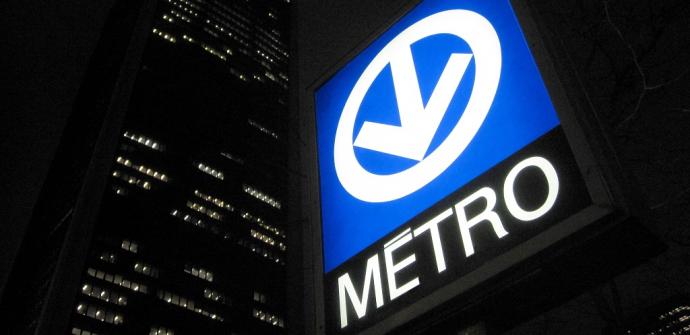At its meeting on April 3, the Board of Directors of the Société de transport de Montréal (STM) approved major investments of $1.633 billion for its métro network. Budgets are allocated as follows: $805.5 million to replace métro stationary equipment as part of phase 5 of the Réno-Systèmes program, $504.0 million for the refurbishment of métro infrastructures as part of phase 3 of the Réno-Infrastructures program and $323.3 million for the addition of elevators in 12 stations for phase 2 of the métro Accessibility program. These investments will take place from 2020 to 2025.
The City of Montréal’s executive committee must authorize the loan by-laws regarding this matter in May.
“Our administration takes the vitality and development of public transit in Montréal to heart and is doing all it can to firmly support its progress. At the same time, we must ensure the quality of our existing infrastructures. The investments announced today will make it possible to continue the reconstruction of the métro from the inside. This is vital to ensuring the quality of service, but also to supporting the enhancement of service and the increase in ridership on our métro,” says Eric Alan Caldwell, City of Montréal executive committee member responsible for mobility and urban planning.
“The métro network includes stationary equipment that is essential to operations and that represents a sizable asset base whose replacement value is evaluated at $6.6 billion. The replacement of existing métro infrastructures is evaluated at $12.6 billion. The Réno-Systèmes and Réno-Infrastructures programs serve to replace this equipment and refurbish infrastructures that have reached the end of their useful life, in a planned, preventive manner, to maintain their reliability and safety,” says Luc Tremblay, STM Chief Executive Officer, during a nighttime visit of métro network facilities.
“We will synchronize these programs to ensure the coordination of interventions in the operating environment and to minimize the impact of work on customers. In particular, we plan to provide a better transit experience thanks to improved network accessibility, with 12 new stations equipped with elevators,” adds Philippe Schnobb, Chairman of the STM Board of Directors.
Réno-Systèmes 5
The work done as part of this program will cover the following areas:
- Energy: replace equipment used to supply power to the metro;
- Ventilation: upgrade the tunnel ventilation system that produces and controls air circulation inside the tunnels and métro stations (e.g., building of 6 new mechanical ventilation stations, refurbishing 4 stations and acquiring 15 new sites for the potential construction of new stations);
- Motorized facilities: replace or upgrade equipment, such as escalators, freight elevators, natural ventilation shafts and pumping stations;
- Telecommunications and operating process controls: replace and add the systems and infrastructures required to control operating processes and operational communications, such as the emergency telephone system and the renovation of booths;
- Train control: replace train control system equipment, such as signalling stations and signalling equipment in the tunnels.
Réno-Infrastructures 3
The Réno-Infrastructures program encompasses the refurbishment of métro network infrastructures, namely stations, auxiliary structures, tunnels, garages and workshops that have reached the end of their useful life.
As part of this phase, the refurbishment of Berri-UQAM station will continue with the replacement of the waterproofing membrane. The STM will also refurbish McGill and Jean-Talon stations. Other stations in the initial network, namely Rosemont (membrane and refurbishment), Champ-de-Mars (membrane), Peel (refurbishment), Sherbrooke (refurbishment and membrane), Jarry (refurbishment) and Papineau (refurbishment), will also be rejuvenated. Work will also be undertaken at d’Iberville, Parc, Outremont, Cadillac, Université-de-Montréal, Côte-des-Neiges, Saint-Michel, Lucien-L’Allier and Plamondon stations. Auxiliary structures will be renovated, and an initial refurbishment phase will begin at the Youville workshop.
Accessibility 2
Once phase 1 of the métro Accessibility program and those of various other programs have been completed, there will be 38 stations remaining in the STM network that have to be made accessible.
Consequently, to reach its goal of 41 accessible stations by 2025, the STM will begin the second phase of the Accessibility program as of 2020. Through this program, elevators will be installed in the following stations: Namur, Pie-IX, Cadillac, Papineau, Saint-Michel, Parc, Jarry, Côte-des-Neiges, de l’Église, Berri-UQAM (Yellow line), Université-de-Montréal and Sherbrooke.
For now, the network has 14 accessible stations, and work to add elevators is underway at Jean-Talon (Blue line), Jean-Drapeau, Berri-UQAM (Green line), Mont-Royal, Viau, Vendôme and Place-des-Arts stations. In 2019, work will also begin at Préfontaine, Jolicoeur, Angrignon and Villa-Maria stations.
The work involved in these three programs qualifies for a 75% subsidy from the Ministère des Transports du Québec.
